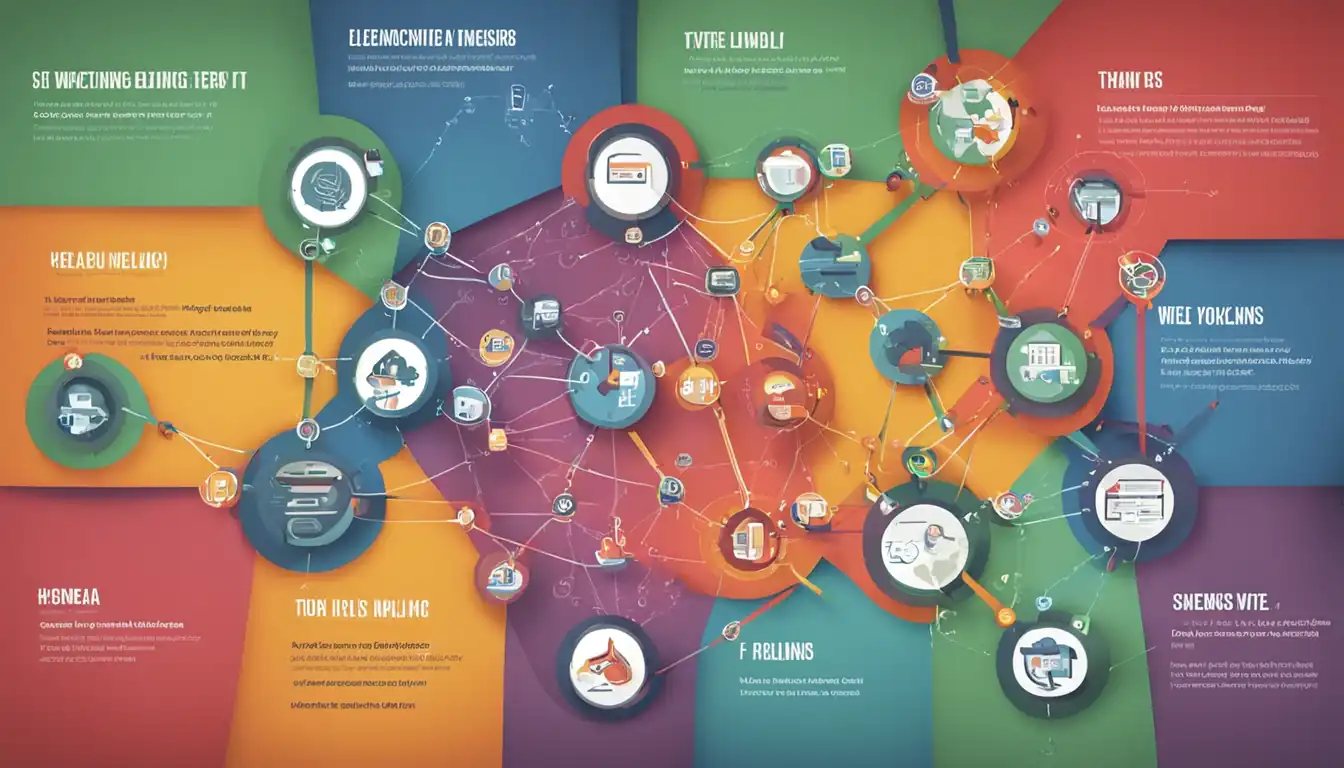Mastering the Art of Link Building

Link building is a crucial aspect of SEO that can make or break your website's visibility in search engine results. Mastering the art of link building requires a combination of strategy, creativity, and persistence. In this post, we will delve into the foundations of link building, creative techniques for gaining backlinks, leveraging social media for links, and measuring your success along the way. So buckle up and get ready to take your link building game to the next level!
The Foundation of Link Building
Understanding the Basics
Link building is a crucial aspect of SEO that involves acquiring hyperlinks from other websites to your own. These links act as signals to search engines, indicating the credibility and authority of your website.
Why Links Matter in SEO
Links play a significant role in determining the ranking of a website on search engine results pages (SERPs). They are seen as a vote of confidence from other websites, signaling to search engines that your content is valuable and worthy of being ranked higher. In essence, the more high-quality backlinks you have pointing to your site, the more likely it is to rank well in search results.
"Quality over quantity is key when it comes to link building. Focus on acquiring links from reputable websites within your industry for maximum impact."
Crafting Your Link Building Strategy
Crafting a solid link building strategy is essential for success in SEO. Here are some key steps to consider when developing your strategy:
Setting Realistic Goals
Setting realistic goals is the first step in any successful link building campaign. Determine what you want to achieve through your efforts, whether it's increasing organic traffic, improving search engine rankings, or boosting brand visibility.
It's important to set specific, measurable, achievable, relevant, and time-bound (SMART) goals to keep your link building efforts focused and on track.
Identifying Target Websites
Identifying target websites is crucial for effective link building. Look for websites that are relevant to your niche and have a good domain authority. Consider reaching out to industry influencers, bloggers, and other authoritative sources in your field.
Make a list of potential websites that you would like to target for backlinks. Conduct thorough research to ensure that these websites align with your brand and can provide valuable links to improve your SEO performance.
Creative Techniques for Gaining Backlinks

In the world of SEO, link building is a crucial aspect of improving your website's authority and ranking on search engines. While traditional methods like directory submissions and article marketing are still effective, mastering creative techniques can give you an edge in the competitive online landscape.
Guest Blogging Like a Pro
Guest blogging is a tried-and-true method for gaining backlinks from high-quality websites. By contributing valuable content to other blogs in your niche, you not only showcase your expertise but also earn a backlink to your own site. To maximize the benefits of guest blogging, follow these tips:
- Research and pitch to relevant websites with a strong domain authority.
- Create unique and engaging content that provides value to the target audience.
- Include a natural anchor text that links back to relevant pages on your site.
- Build relationships with bloggers and editors for future collaboration opportunities.
The Power of Broken Link Building
Broken link building is another effective strategy for acquiring backlinks by finding broken links on reputable websites and offering them a replacement link to your own content. This technique involves the following steps:
- Identify websites in your niche with broken links using tools like Ahrefs or Check My Links.
- Create high-quality content that serves as a suitable replacement for the broken link.
- Reach out to the website owner or webmaster with a polite email informing them about the broken link and offering your content as an alternative.
- Monitor responses and follow up if necessary to secure the backlink.
By incorporating these creative techniques into your link building strategy, you can enhance your website's authority and visibility in search engine results pages.
Leveraging Social Media for Links

In today's digital landscape, social media has become a powerful tool for link building. By strategically utilizing platforms like Twitter, Instagram, and LinkedIn, you can increase your website's visibility and attract high-quality backlinks.
Engaging with Influencers
One effective way to leverage social media for link building is by engaging with influencers in your industry. These individuals have a large following and can help amplify your content to reach a wider audience. By building relationships with influencers and sharing their content, you can increase the likelihood of them linking back to your website.
Creating Share-Worthy Content
Another key strategy for link building through social media is creating share-worthy content. This could be in the form of blog posts, infographics, videos, or podcasts that provide value to your target audience. By consistently producing high-quality content that resonates with users, you can encourage them to share it on their own social channels and potentially earn valuable backlinks in the process.
Measuring Your Success
When it comes to link building, measuring your success is crucial in determining the effectiveness of your efforts. By tracking key metrics and analyzing data, you can make informed decisions to improve your strategy and achieve better results.
Tools and Metrics for Tracking Progress
There are various tools and metrics available to help you track the progress of your link building campaign. Some popular tools include:
Google Analytics: This tool provides valuable insights into website traffic, referral sources, and user behavior, allowing you to see how links are driving traffic to your site.
Moz Link Explorer: With this tool, you can analyze backlinks, anchor text, and domain authority to monitor the quality of your links.
Ahrefs: A comprehensive tool for backlink analysis that helps you identify new link opportunities and track competitor activity.
SEMrush: Another powerful tool for monitoring backlinks, organic search rankings, and overall website performance.
In addition to these tools, key metrics to track include:
Number of backlinks: Monitoring the quantity of backlinks pointing to your site can indicate the growth of your link profile.
Domain Authority (DA): This metric measures the strength of a website's backlink profile and can influence search engine rankings.
Referral traffic: Tracking the amount of traffic coming from external websites can show how effective your link building efforts are at driving visitors to your site.
Adjusting Your Strategy Based on Data
Once you have gathered data on the performance of your link building campaign, it's essential to analyze this information and make adjustments as needed. Here are some tips for adjusting your strategy based on data:
Identify top-performing content: Analyze which pieces of content are attracting the most backlinks and focus on creating similar high-quality content in the future.
Monitor competitor activity: Keep an eye on what strategies competitors are using to build links and consider incorporating successful tactics into your own strategy.
Diversify anchor text: Avoid overusing exact match anchor text and instead aim for a natural mix of branded terms, generic phrases, and variations.
By continuously monitoring progress, analyzing data, and making strategic adjustments, you can master the art of link building and drive significant improvements in search engine rankings and organic traffic.